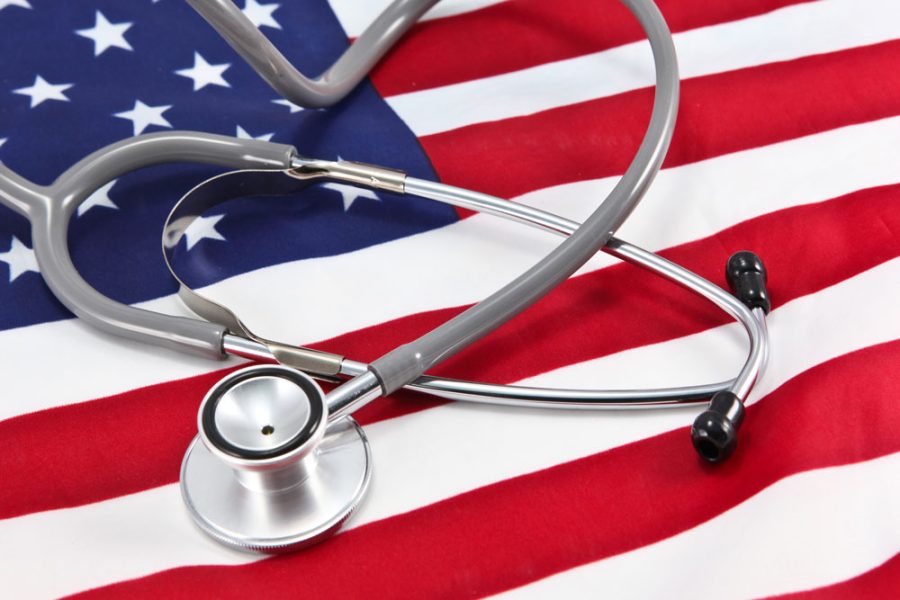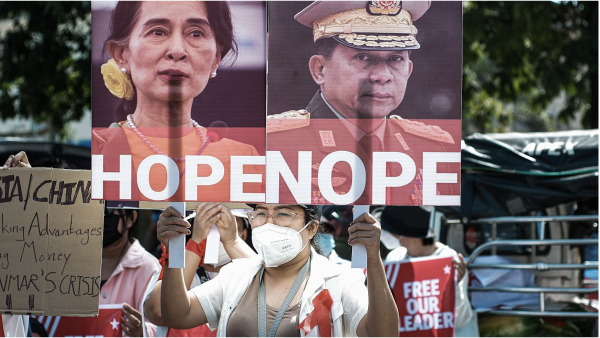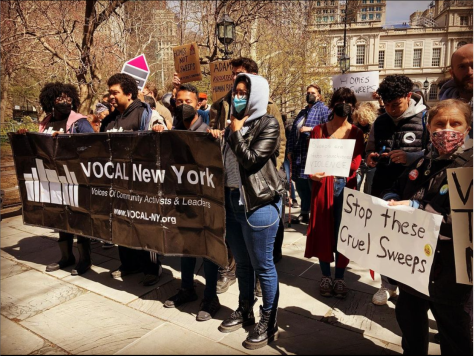The Critical Aspect Americans Forget When Discussing Universal Healthcare
The topic of universal healthcare has been hotly debated for years in American politics. Many candidates of the 2020 presidential election, such as Bernie Sanders and Elizabeth Warren, advocated for the introduction of universal healthcare in the United States. To many Americans, universal healthcare in the United States is long overdue with the country being one of the only developed nations to not yet have such a system. But despite the frequency of this debate in the U.S. and the urgent necessity of universal healthcare, there is a critical aspect never mentioned in U.S. political debates: the personal health of American citizens.
Other countries that have a well-developed universal healthcare system have implemented legislation in order to maintain a healthy population. For example, if you have ever been to Europe, you may have noticed that Coca Cola tastes less sweet there than in the United States. That is because many European governments regulate sugar content and take an interest in the healthiness of the products their citizens consume: the United Kingdom has a tax on sugar, Denmark has a tax on fat, most European countries have a high tobacco tax, and Sweden has a very high tax on alcohol. Overall, European countries have the strictest regulations on food quality in the world.
Even beyond regulating what their citizens eat and drink, European governments also regulate how food is sold. For example, the United Kingdom banned the use of cartoon characters in the advertising of candies or sweets, as well as any other advertising method that specifically targets children. Aside from food regulations, many European governments incentivize their citizens to be more physically active. For example, the German government subsidizes sports initiatives and provides extensive fitness programs for students.
The best example of why this is important for universal healthcare is the country of Japan. According to the World Health Organization, Japan’s healthcare system is consistently rated to be one of the best in the world, based on quality and efficiency. Despite this, Japan only spends $4,267 per capita on its healthcare, less than other countries with an equally extensive system. This is because Japan also has the healthiest population in the world, with only 3.6% of Japanese citizens being obese, the smallest percentage of any developed country. The health of a country’s citizens directly affects the expenditure of that country’s universal healthcare system.
In a healthcare system that is financed by taxpayers, both the taxpayers and government have an interest in the health and well-being of all citizens. In the United States, if you lead an unhealthy lifestyle, whether it be through obesity or drugs, this will reflect itself in the costs towards your private healthcare provider through treatments for your associated medical problems. In a country with a universal healthcare system, the costs for these treatments are paid for by other people’s taxes. It is consequently no longer just your responsibility to pay for the problems caused by your lack of personal health, but also everyone else’s. In other words, a small extent of your personal liberty, to live and eat however you’d like, is sacrificed for the greater good of society. In most developed countries, this social contract has been widely accepted, due to the many benefits that a universal healthcare system brings.
However, it is up to question as to whether U.S. citizens could put up with such a standard. First of all, 32% of Americans are obese, but it goes even deeper than that. Personal freedom and independence are at the heart of the country’s identity. To many Americans, seeing your actions and your life within the larger framework of how they impact society is not something that is particularly attractive. The heavy government regulations on food products seen in Europe, as well as the government-sponsored initiatives to live healthy lives, are things that most Americans would probably not accept.
For instance, in 2012, the former mayor of New York City, Michael Bloomberg, attempted to ban the sale of sugary beverages larger than 16 ounces in food-service establishments. This was a pretty mild regulation, as the rule did not apply to supermarkets, vending machines, or convenience stores, and there was no ban on refills. Nevertheless, it was a measure instituted in order to encourage healthy living for New Yorkers. However, so many New Yorkers protested the ban that it was rejected, despite NYC being a vastly left-wing area that has continuously supported the idea of a universal healthcare system.
Another example of why Americans would reject the social contract that comes with universal healthcare is the debate over wearing facemasks during the COVID-19 pandemic. At the start of the pandemic, it quickly became apparent that wearing face masks significantly decreased the spread of the disease. Thus, wearing a facemask became accepted and encouraged throughout the world. However, in America, countless citizens protested against wearing facemasks, saying that it violated their individual rights. If Americans are not willing to wear a facemask to stop a pandemic, how could Americans ever make significant lifestyle changes for the greater good of society? The emphasis on individual freedoms in the United States makes it very difficult for a nationwide universal healthcare system to be implemented.
In a conversation about whether or not to have a universal healthcare system, such measures to change the lifestyles of citizens are critical. However, the proponents of universal healthcare in the United States don’t ever discuss this. Without first incentivizing the public to lead healthier lives, a universal healthcare system will become bloated and exorbitantly costly on the state.
Additionally, a critical element is that the idea of a universal healthcare system in the U.S. does not have the necessary political support. In a vast majority of European countries, both sides of the political aisle agree to ensure the strong state of their healthcare system. This bipartisan support does not exist in the United States. If a Democratic president were to introduce a universal healthcare system, it would only remain until the next Republican president comes into office.
I personally don’t believe that a top-to-bottom, federal, centralized, public healthcare system would work in the United States. The country is too big, the bureaucracy would be too large, the taxpayers are unwilling to pay, and the needed political consensus does not exist.
I instead propose that public healthcare is implemented at the state level. Just as with the legalization of cannabis, legislation in individual states will then convince those in other states of the viability of the system. Not only are such efforts more likely to succeed, but it would also prevent the dismantling of the public healthcare system if an opposing federal government gains power. Along with being more efficient, a smaller regional system would be more in-touch and connected with the people it serves, which would therefore make it easier to implement the necessary corresponding measures to incentivize healthy living.















Isabella • Mar 1, 2022 at 10:42
I’m a student from a Georgian paper looking for other SNO articles to do analyses of, and in my paper I will definitely say this article is amazing! It has relevant information, a unique take on the subject and is filled with stats. Great job:-)
Anyue Zhang • Mar 4, 2022 at 19:04
Thank you!
Anonymous • Feb 20, 2022 at 23:05
This is a fantastically written article, clear arguments and very organised writing. But something that bugged me when reading was using obesity as a point to prove your argument. Yes, America (at 36% according to data.worldobesity.org) leads the world in obesity (of any non-island nation) but quite a few countries with free and universal healthcare also have high obesity rates, for example, Kuwait at 33%, Saudi Arabia at 32%, New Zealand at 31%, Australia at 31% and the list continues. Anyway, I just want to say that America isn’t an exception in its obesity rate, countries with universal healthcare also face the same issue.